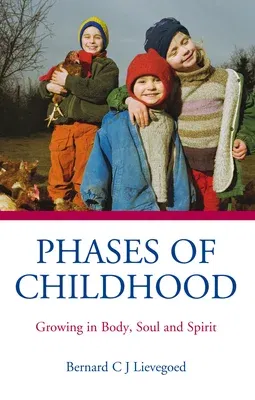Bernard C J Lievegoed
(Author)Phases of Childhood: Growing in Body, Soul and Spirit (Revised)Paperback - Revised, 15 July 2005

Qty
1
Turbo
Ships in 2 - 3 days
Only 3 left
Free Delivery
Cash on Delivery
15 Days
Free Returns
Secure Checkout

Print Length
208 pages
Language
English
Publisher
Floris Books
Date Published
15 Jul 2005
ISBN-10
0863154816
ISBN-13
9780863154812
Description
Product Details
Author:
Book Edition:
Revised
Book Format:
Paperback
Country of Origin:
US
Date Published:
15 July 2005
Dimensions:
21.34 x
13.72 x
1.78 cm
ISBN-10:
0863154816
ISBN-13:
9780863154812
Language:
English
Location:
Edinburgh
Pages:
208
Publisher:
Weight:
294.83 gm